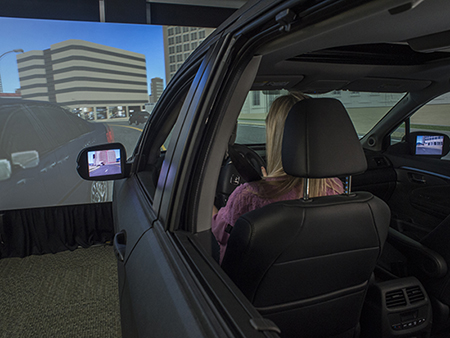
By Alicia Rohan
UAB News
Motor vehicle collisions are the leading cause of death among teenagers, with inattention being the primary contributor. They account for approximately one in three deaths among teens ages 16 to 19. A University of Alabama at Birmingham study is testing the influence of age and driving experience on driving attention development under various conditions.
Researchers are looking for individuals 18 years of age who have either just received their driver’s license within the past two weeks or do not have their driver’s license or permit and do not intend to have a change in licensure status for the duration of the study, 18 months.
Adolescents will perform general and driving-based attention tasks, as well as cognitive function tasks, at seven different visits to the Translational Research Injury Prevention Lab over an 18-month period. Seven visits are required to obtain baseline information. Changes will be tracked over six visits every three months. Participants will be asked to operate a virtual reality simulator and complete questionnaires and computerized tasks. They will also complete biweekly surveys. Each participant will receive up to $560 in compensation.
“We already know that driver inattention equals further vulnerability to distraction,” said Despina Stavrinos, Ph.D., assistant professor in the College of Arts and Sciences’ Department of Psychology. “What we need to know more about is the relationship between young age and low driving experience to driving attention. We believe this new study will help reveal how those factors can actually predict driving attention and driving outcomes.”
The study, funded by the National Institutes of Health, enables researchers to test the influence of age and driving experience on driving attention development under various conditions. It will identify underlying cognitive mechanisms of attention development and ultimately the occurrences of collisions. Researchers look at the drivers’ general attention, speed of processing and executive function — all underlying cognitive mechanisms of attention.
The study, “Longitudinal Examination of Driving Attention Among Adolescents,” began in August 2017 and will continue through May 2022.
For more information or to enroll in the study, contact the UAB TRIPLab at triplab@uab.edu or 205-975-9440.




